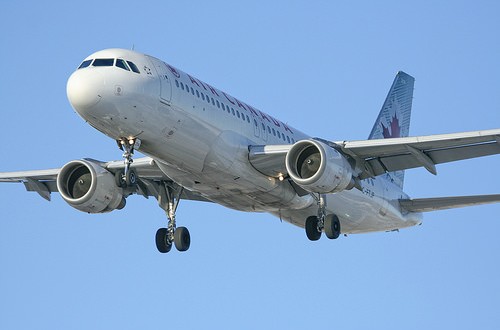The city says it will work with Montreal’s public health agency to start a committee, before the end of the year, which will discuss solutions to the noise pollution problem across the island.
The committee will work with partners such as Transport Quebec, CN and the Montreal airport to figure out what can be done to bring down noise levels.
Regional noise control policy
Réal Ménard, member of the executive committee responsible for the environment at the City of Montréal, indicates that the City wishes to introduce preventive measures to decrease the public’s exposure to traffic noise: “A framework for land use planning and development plan of the Montréal urban agglomeration is currently being developed. The plan, which should be adopted before the end of 2014, identifies the main mobile sources of noise and aims to tighten noise and vibration constraints. Several measures that could be introduced with the adoption of the framework respond to concerns expressed by the public health department. Dr. Massé salutes the City’s commitment: “We are very pleased that the City is ready to contribute to the prevention of health problems linked to transportation noise. Noise management in urban areas is a big challenge and requires the collaboration of many partners.”
Some of the measures being considered for the framework are
the integration of land use criteria in sectors where noise levels are high;
the inclusion of soundproofing standards relating to those sectors; and
a framing of certain usage of territory within a zone.
Health impacts of noise
The World Health Organization (WHO) attributes a number of adverse health effects to noise: annoyance, sleep disturbance, and cardiovascular diseases such as high blood pressure. Annoyance affects well-being and quality of life; for instance, noise is considered to be an annoyance when it prevents conversation, or disturbs sleep, rest or study. Although annoyance and sleep disturbance are the most common effects, when noise levels and duration of exposure increase, people who are more sensitive to noise risk developing other effects such as cardiovascular disorders. As a result, WHO recommends that people not be exposed to daytime and nighttime outdoor noise levels exceeding 55 dB (A) (weighted decibel that reflects the human ear).
Noise measurement results
In 2010 the public health department, in collaboration with Institut national de santé publique du Québec and Université de Montréal, measured ambient noise using sound level meters placed at 87 different sites on the Island of Montréal. Sound samples were taken every two minutes over a two-week period. The data collected revealed that noise levels on the Island of Montréal are often higher than those recommended by the WHO, but similar to levels observed in Toronto, for example. Modelling results also showed the influence of mobile noise sources on ambient noise levels.
Transportation noise management
Although there are measures to manage transportation noise in the city, the findings presented in the public health notice indicate that additional measures are needed. The public health department recommends that action 18.1 in Montréal’s Master Plan be implemented so that a consultative committee can be set up to limit road, railway and aircraft noise nuisances in residential areas. Recommendations specific to aircraft noise have been made in a separate public health notice. That notice refers to Transport Canada’s recommendations regarding the need to install acoustic insulation in new buildings located within NEF 25 contours, where the public risks being disturbed by airplane noise, and not to undertake construction in NEF 30 contours, where aircraft noise is greater.
Ongoing research on noise
To better assess the impacts of noise on population health and to help find solutions, the public health department will develop a model to assess mobile source noise levels on the island using samples collected in 2010 and in 2014. Data will be linked with results of an upcoming population survey that will assess the impacts of environmental noise on the health of Montrealers.
Agencies/Canadajournal
 Canada Journal – News of the World Articles and videos to bring you the biggest Canadian news stories from across the country every day
Canada Journal – News of the World Articles and videos to bring you the biggest Canadian news stories from across the country every day



